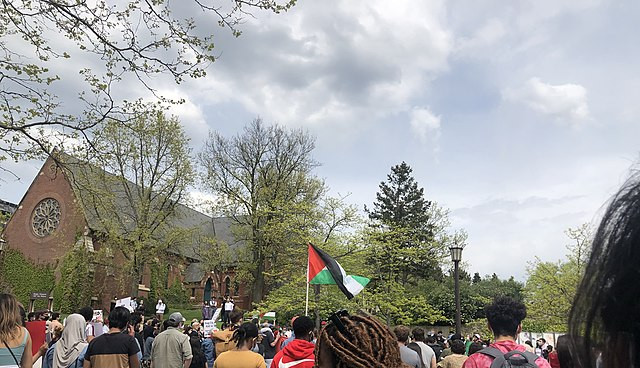Hopes for a ceasefire in the nearly seven-month-long war between Israel and Hamas in Gaza have risen as a Hamas delegation arrived in Cairo on Saturday to continue indirect talks, with reports suggesting that the terror group is considering a new proposal that comes closest to meeting its demands. According to Arab mediators who spoke to The Wall Street Journal, Yahya Sinwar, a top Hamas leader in Gaza, claimed that the latest hostage-for-ceasefire offer, which would see an immediate temporary ceasefire and hostage release, meets several of the group's requirements but also raises some caveats.
The Hamas delegation, led by Khalil al-Hayya, deputy head of the group's political arm in Gaza, is expected to present a counterproposal soon as ceasefire and hostage talks continue in the Egyptian capital. CIA Director William Burns is also taking part in the discussions, underscoring the international pressure for a deal to be reached.
However, both Hamas and Israel remain at odds over the terror group's demand that any agreement be conditioned on ending the war. Taher al-Nono, an advisor to Hamas chief Ismail Haniyeh, stated that while the group is dealing with the proposals put forward by Egyptian and Qatari mediators "with full seriousness and responsibility," any hostage deal would require Israel to withdraw its troops from Gaza and accept a permanent ceasefire.
Israel, on the other hand, refuses to drop its plans for an offensive in Rafah, Gaza's southernmost city, and continues to rebuff calls to end the war. "Israel will under no circumstances agree to ending the war as part of a deal to free our hostages," one Israeli official said, emphasizing that the country also refuses to call off its plans to invade Rafah, where an estimated 1.5 million Palestinians are sheltering.
The impending Israeli offensive in Rafah has raised concerns among humanitarian groups and the United Nations, who warn that it could lead to a surge in civilian casualties and exacerbate the already dire humanitarian crisis in Gaza. U.S. Secretary of State Antony Blinken reiterated Washington's objections to a Rafah offensive, stating that Israel had not presented a credible plan to protect the civilians displaced from elsewhere in Gaza who have sought refuge in the city.
Despite these concerns, Israeli officials maintain that a ground offensive in Rafah is essential to achieve the country's stated war aims, as thousands of Hamas fighters and the organization's leaders are believed to be based there. Hamas seized about 250 hostages during a surprise attack into southern Israel in October last year, triggering the current war. Approximately half of those hostages are still being held in Gaza, with many thought to be in or under Rafah.
The war has taken a heavy toll on both sides, with about 1,200 people, mostly civilians, dying in the October Hamas attack, and more than 34,600, primarily women and children, losing their lives in the ensuing Israeli military offensive. Israel accuses Hamas of using civilians as human shields, a charge the organization denies.
As the talks in Cairo continue, Egypt and the U.S. have reported signs of compromise in recent days. Egyptian state news channel Al-Qahera said on Saturday that a consensus had been reached in the indirect talks over many of the disputed points, although no further details were provided. However, many analysts remain pessimistic given the long history of stop-start talks that have frequently broken down.
The U.S. has sought to pressure Hamas to accept the latest proposals, which are widely seen as a last chance to avert intense new fighting. Blinken emphasized this point, stating, "The only thing standing between the people of Gaza and a ceasefire is Hamas."






